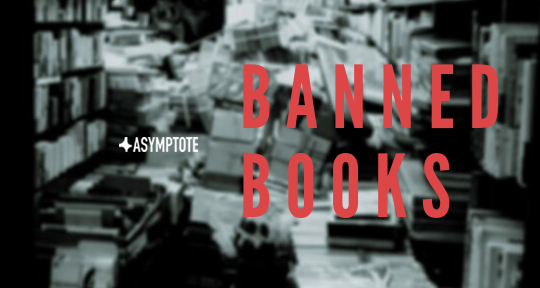For literature lovers, it is no secret that a great deal of our favorite titles have been—or still are—banned from the public. In this following essay by Anna Wang, Graphic Designer at Asymptote, she takes us around the multifarious and wide-ranging cartography of vital, yet blacklisted, titles from around the globe, from a novella that metaphorically depicts the persecuted Uyghurs of China, to an infamous work of revolutionary author Boris Pasternak. In realizing the context and culture in which these pertinent titles arose, we may in turn acknowledge both the price, and the power, of the truth.
In a speech given by Ralph Waldo Emerson entitled “The American Scholar,” Emerson gave both praise and warning to the power of literature, stating: “Books are the best of things, well used; abused, among the worst.” Emerson was right. Books have the ability to persuade, influence, and inspire—an ability which many have found threatening. Time and time again, figures of authority have attempted to reign in or block out literature that challenges their agenda. In celebration of banned literature in the history of world literature, let’s take a look at some of the most impactful banned texts throughout time, why they were banned, and what we can learn from them.
Wild Pigeon, by Nurmuhemmet Yasin
Wild Pigeon is a novella originally published in Uyghur between the pages of the 2004 Kashgar Literature Magazine. Written by a young freelance writer, Nurmuhemmet Yasin, it quickly gained widespread acclaim among the Uyghur people in China. The work, written in Uyghur, is a political allegory that tells the story of a young pigeon who is the son of a dead king. While he is looking for a new home, he is trapped by a group of humans. His struggle for freedom and his eventual shocking decision has been interpreted by many as a criticism of the Chinese government for its treatment of its Uyghur population.

